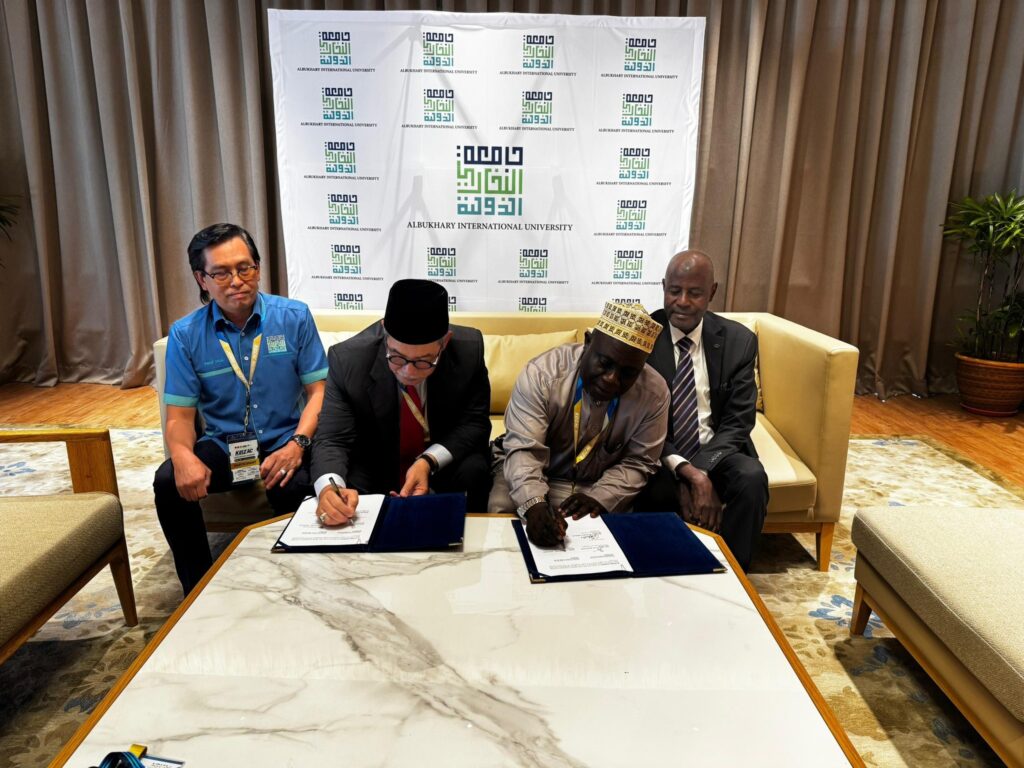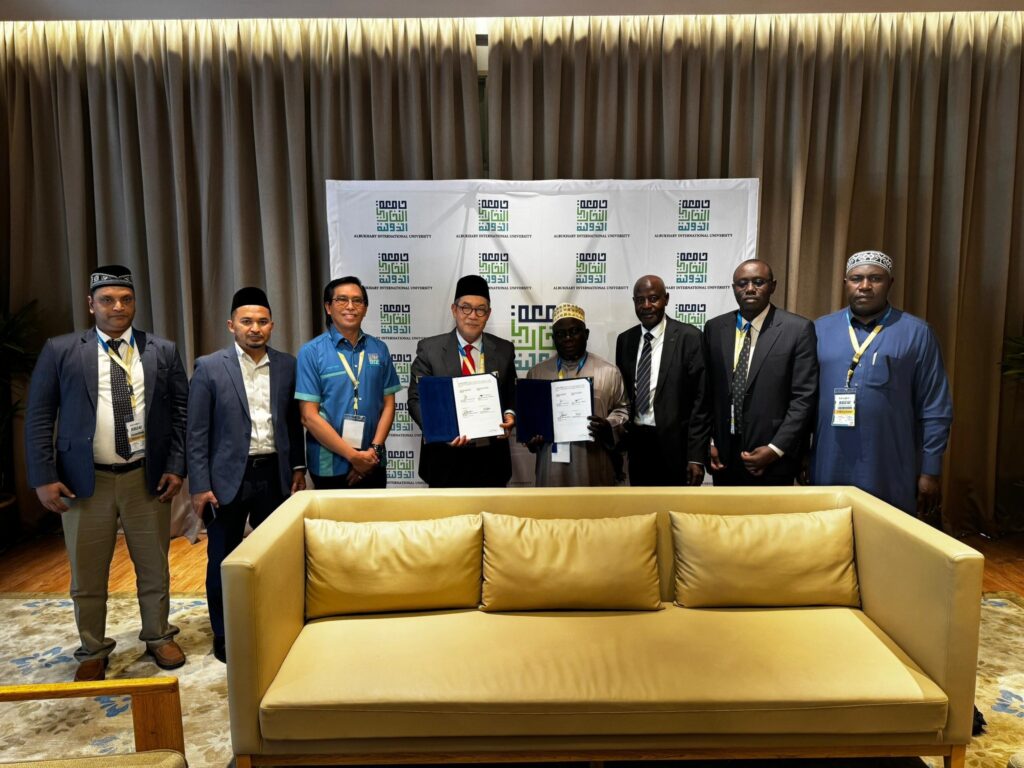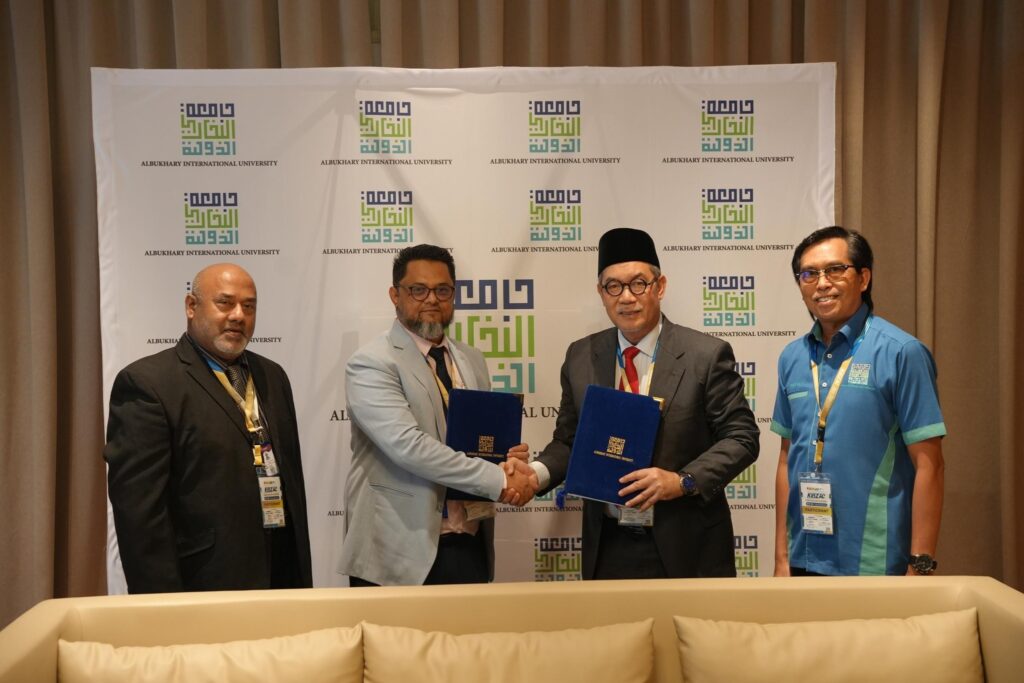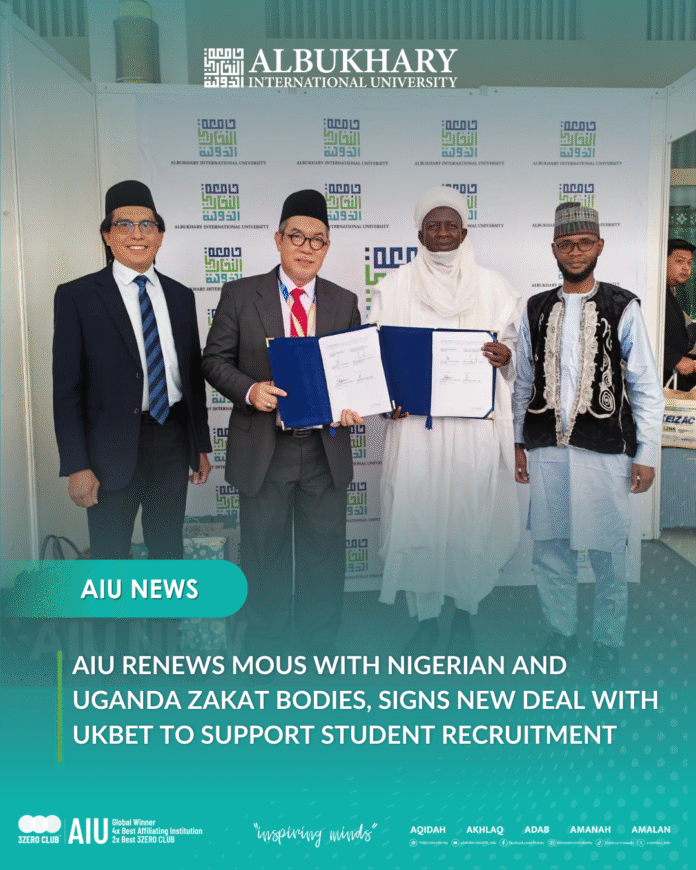LANGKAWI, 12 September 2025 – Albukhary International University (AIU), Malaysia, has taken another significant step towards expanding its global reach in education and community empowerment. On 11 September 2025, the university renewed its Memoranda of Understanding (MoUs) with two major zakat and waqf bodies—the House of Zakat and Waqf Uganda and the Sokoto State Zakat and Waqf Endowment Commission, Nigeria.
In addition, AIU entered into a new partnership with the UK Bangladesh Education Trust (UKBET), focusing on the recruitment of bright and deserving students from Bangladesh.
These collaborations reflect AIU’s commitment to strengthening international educational partnerships while staying true to its mission of providing access to higher education for students from underserved and disadvantaged backgrounds worldwide.

Why These Renewed MoUs with Zakat and Waqf Bodies Matter
Zakat and waqf institutions play an essential role in community development, particularly in supporting education, healthcare, and poverty alleviation. By renewing its MoUs with Uganda and Nigeria, AIU is reinforcing its long-standing collaboration with Islamic charitable bodies that share a common vision: empowering future leaders through education.
- House of Zakat and Waqf Uganda – Known for its community welfare projects, this institution has supported thousands of underprivileged students and families across Uganda.
- Sokoto State Zakat and Waqf Endowment Commission (Nigeria) – A leading zakat body in West Africa, it contributes to socio-economic development by financing education and supporting the less privileged.
Through these partnerships, AIU ensures that more students from Africa will have access to quality higher education in Malaysia, helping them become changemakers in their own communities.

A New Chapter: AIU and UKBET to Recruit Students from Bangladesh
One of the highlights of the signing ceremony was the new MoU with the UK Bangladesh Education Trust (UKBET). UKBET has been actively working to support Bangladeshi students in pursuing higher education abroad, particularly those who come from financially disadvantaged families.
This partnership will:
- Identify talented and deserving Bangladeshi students.
- Provide them with scholarship and financial aid opportunities.
- Strengthen AIU’s reputation as a global university that champions inclusivity and diversity.
With this move, AIU is expected to welcome more students from South Asia, adding to its already diverse community of learners from over 60 countries.

AIU Leadership at the Signing Ceremony
The official signing took place at Pelangi Beach Resort, Langkawi, with the presence of AIU’s top leadership:
- Prof. Dato’ Ir. Dr. Mohd Saleh Bin Jaafar – Vice Chancellor and President of AIU
- Prof. Dr. Hj. Mohamad Abdullah Bin Hemdi – Deputy Vice Chancellor (Academic)
Their participation underlines AIU’s strong commitment to fostering international collaborations that align with the university’s core values of compassion, inclusivity, and social responsibility.
AIU’s Global Mission and Impact
Albukhary International University is built on the principle of making education accessible to all, especially students from low-income and underprivileged communities worldwide. By partnering with organizations like zakat bodies and educational trusts, AIU ensures that financial barriers do not stop capable students from realizing their dreams.
These MoUs are more than just paperwork—they symbolize:
- Global solidarity in education.
- The role of zakat and waqf in uplifting communities.
- The power of cross-border partnerships in shaping future leaders.
Conclusion: Building a Brighter Future Together
The renewed partnerships with Uganda and Nigeria’s zakat bodies, along with the new collaboration with UKBET, highlight AIU’s position as a beacon of hope for disadvantaged students across Africa and Asia.
Through these collaborations, AIU continues to prove that education is not just about classrooms—it is about empowerment, opportunity, and global impact.
With each MoU signed, the university moves one step closer to achieving its vision of producing compassionate leaders who will create positive change in their societies.


